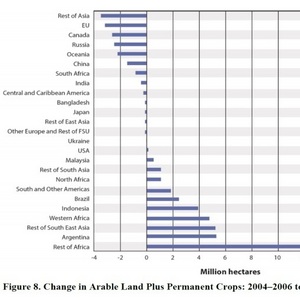RFA to CARB: Use real-world data to revise ILUC analysis

Renewable Fuels Association
February 17, 2015
BY Renewable Fuels Association
The Renewable Fuels Association submitted comments on Monday calling on the California Air Resources Board to revise its Low Carbon Fuel Standard re-adoption proposal to reflect recent scientific advances and new empirical data regarding the actual impacts of biofuels on global land use patterns.
In comments submitted to CARB Chairwoman Mary Nichols, RFA noted that while steps have been taken to slightly improve the program in the re-adoption proposal, RFA remains “deeply concerned by several aspects of the proposal,” noting that CARB’s inclusion of a flawed indirect land use (ILUC) change analysis “threatens the long-term durability of the LCFS program.”
Advertisement
Advertisement
RFA points to the central role that grain-based ethanol has played in LCFS compliance over the past four years, noting that nearly 60 percent of all LCFS credits were generated by ethanol. Yet, despite the vital importance of grain ethanol to the program, the proposed ILUC penalty assessed against corn ethanol “will make the use of most grain ethanol infeasible for compliance as early as 2016.”
The comments explain that “CARB’s ILUC analysis remains technically and methodologically flawed, and grossly overstates the land use impacts associated with biofuels expansion.” RFA points to a recent study by Iowa State University that finds the world’s farmers have responded to increased demand for crops by using existing cropland more efficiently—not by converting native forest and grassland to cropland, as assumed by CARB. RFA notes that, “For the first time, we have real-world data that provides important insight into actual market responses to increased biofuels demand and higher crop prices.” Accordingly, RFA calls on CARB to “take into account the new CARD/ISU research” and use the real-world data to “immediately re-calibrate” the land use model used to derive penalties against biofuels.
Advertisement
Advertisement
Related Stories
International Sustainability & Carbon Certification has announced that Environment and Climate Change Canada has approved ISCC as a certification scheme in line with its sustainability criteria under its Clean Fuel Regulations.
Legislation introduced in the California Senate on June 23 aims to cap the price of Low Carbon Fuel Standard credits as part of a larger effort to overhaul the state’s fuel regulations and mitigate rising gas prices.
The government of Brazil on June 25 announced it will increase the mandatory blend of ethanol in gasoline from 27% to 30% and the mandatory blend of biodiesel in diesel from 14% to 15%, effective Aug. 1.
The U.S. Court of Appeals for the D.C. Circuit on June 20 rejected several claims challenging the U.S. EPA’s RFS Set rule but will require the agency to provide additional information on certain environmental findings.
The 2025 International Fuel Ethanol Workshop & Expo, held in Omaha, Nebraska, concluded with record-breaking participation and industry engagement, reinforcing its role as the largest and most influential gathering in the global ethanol sector.
Upcoming Events










